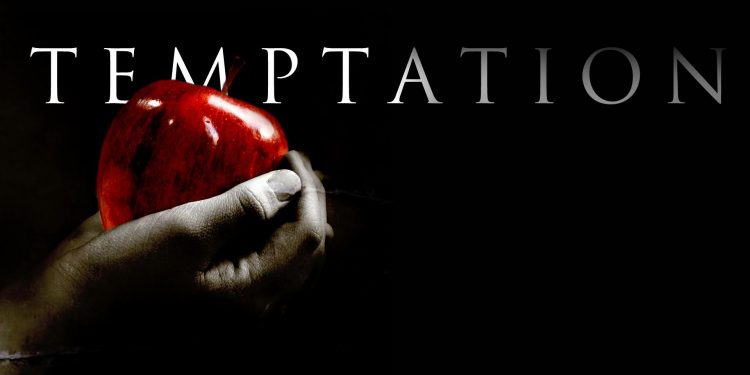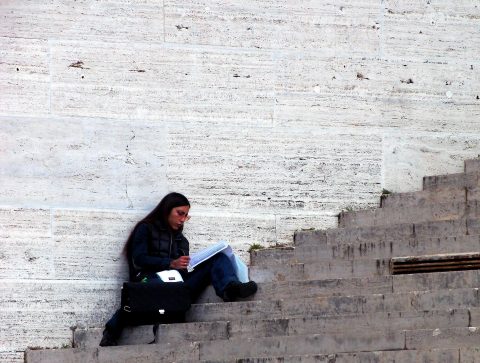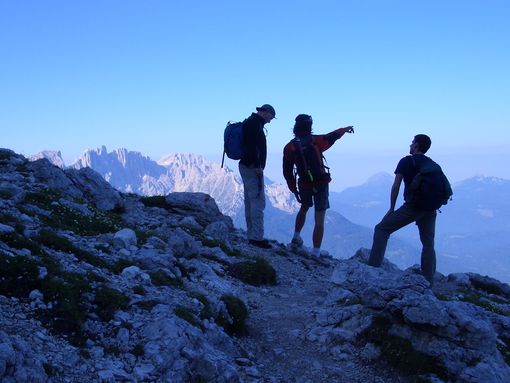No groups. No gatherings. Almost everything online. Two persons the maximum for walking together. This week I was wondering how we can survive these times. Especially when you are here alone. Without your family, without your former friends. I cried out: Lord, how can we survive these times? It came to my mind that in the letter to the Hebrews we read that Jesus, our High Priest is not unable to sympathise with our weaknesses, because he has been tempted in every respect as we are, yet without sin. [Hebr.4:15] Then I wondered: but when did Jesus face a pandemic? It seems that we always see Him among disciples, crowds… Yes, we know about His sufferings, but at least there were always people around Him, at least He was not restricted from meeting people. But then, at once, it came to my mind how the Spirit led Jesus to the desert, immediately after His baptism. And thinking about this, helped me a lot. Perhaps this is a way, we can look at our times: we have been led into the desert. What does this mean? Thinking and meditating upon this, I came to three things:
FIRST: A desert time is a time of testing and of temptation. In the desert you can feel desolate and deserted. We were not designed to be alone. Even before the fall – you suppose that all creation was very good then – God said that there was something that was not good: `it is not good that the man should be alone.’ [Gen.2:18] So indeed: these times are not normal. When we are alone, we are vulnerable. It is hard for us to put things into perspective when we are alone. A wonderful Psalm for these times to sing or read is Psalm 91. Probably Jesus did so, although Satan even tried to abuse the words of this Psalm. Jesus was tempted in the desert by the evil one, to provide for himself the things he felt he so urgently needed. However, He resisted by treasuring the Word of God, the promises of God. He was not alone. God, the Spirit, the angels were with Him. This Jesus is our reliable Saviour and He has said: I am with you all the days. If we feel we are tempted and tested, the best thing we can do is to call upon His Name. He is sinless. We aren’t. But He came in order to save us from our sins. This also implies: to save us from the power of sin, from the power of the evil one. So: Jesus is able to save us and get us through these times of testing and temptation.
SECOND: A desert time is a time to treasure God’s Word. Remarkably enough the Hebrew Word for desert and for speaking are basically the same [mdbr], only the vowels differ. When God led Israel into the desert, the purpose was that they would learn to listen to Him and to live in His presence. In the desert they were missing former privileges as they had enjoyed in Egypt. But now they might enjoy God’s speaking to them, His nearness, help and provision. Indeed, the tempter may seem to be more powerful in these times. But when we aim to listen to God’s Word, we may find that God’s Word speaks more powerful to us as well in these times. In the book of Hosea the desert is depicted as the place where the bridegroom prefers to be with his bride. Therefore God led Israel into the desert, to make a covenant with His people. `I will lead her into the desert [mdbr] and speak [mdbr] tenderly to her there.’ (Hosea 2:14). Thus God spoke, after His people had left Him for a long time and had loved others (idols). So may these times be times for us, to come back to God and to dig deeper in God’s Word. Develop a rhythm for yourself to read and meditate upon God’s Word. Don’t miss the Sunday services and join a Life Group. Discover and treasure the power of God’s Word in these times!
THIRD: A desert time is temporal. In the fact that the Spirit led Jesus into the wilderness is great comfort. It means that the Spirit, that God is in control. He always is. Now also. In 1918 – 1918 the world faced a pandemic, the Spanish flu. It was a time of deep crisis and a period into which many people got ill and died. But there also was a moment that that crisis ended. This Covid-crisis will also come to an end. When you are into it, it seems endless. It looks as the new normal. But it isn’t. Although we don’t know when it will come to an end, it will end. God is in control. So we must persist. Yes, during our lifetime we will see many crises. This life is not yet `the promised land’. However, God grants us time after time that crises are overcome. This life is not all desert either. Other times will come again. But even now it is not all desert. What we have received and what we can give, is probably more than we think. Once Jesus was in a desolate place with the disciples and with a great crowd. There was a boy who only had five loaves and two fish. It didn’t seem to be much, but he gave it. And under the blessing hands of the Lord it turned out to be and to become much more than anyone could ever have imagined. Let us pray that the Lord will use us in similar ways during this `desert time’!
pastor Jos
p.s. feel free to send me your thoughts or questions! (ds.josslager@gmail.com)









